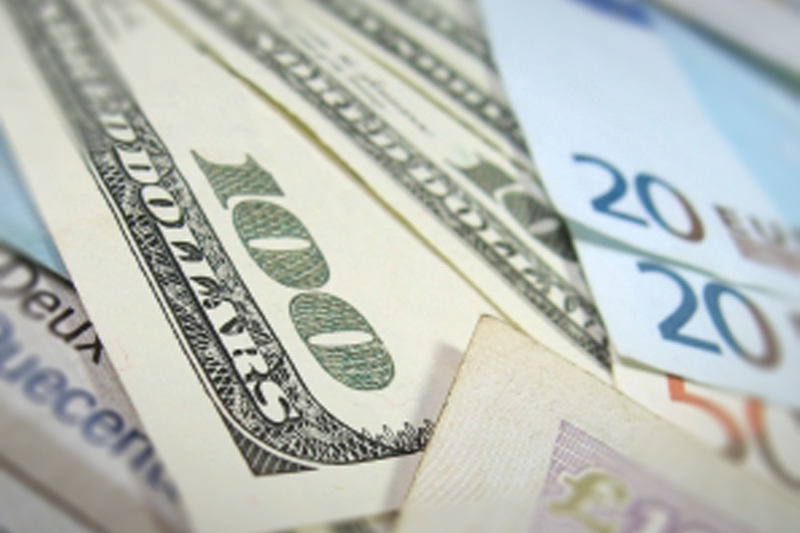Investing.com -- EUR/USD fell considerably on Friday dropping to fresh 1-week lows, as fresh Brexit concerns and a massive government bond yield rout throughout the euro zone sent investors scurrying toward the dollar.
The currency pair traded between 1.1246 and 1.1322, before settling at 1.1252, down 0.51% on the session. With the sharp losses, the euro extended previous declines from this week and erased all of its gains from last Friday's session when it surged nearly 2% following a weak U.S. jobs report. On Friday, the euro settled below 1.13 against its American counterpart for the first time in seven sessions.
EUR/USD likely gained support at 1.1055, the low from March 15 and was met with resistance at 1.1616, the high from May 3.
Investors continued to pile into safe-haven assets on Friday, as government bond yields worldwide tumbled to fresh record lows. Yields on the Germany 10-Year fell as low as 0.02%, as more than 75% of German government bond yields hovered in negative territory. Throughout the euro zone, bond prices remained high as yields in the U.K, France,Italy and Spain provided unattractive options for investors. It came one day after Janus Capital's Bill Gross cautioned that a $10 trillion pile of negative yielding government bonds could amount to a "supernova that will explode one day."
In the last month alone, yields on each of the five aforementioned government bonds have plummeted at least 10 basis points. Over the last year, German bund yields have crashed nearly 100 basis points, while yields on 10-year U.K. Gilts and France Oats have plunged approximately 90 basis points. In Japan, government bond yields fell three basis points to Minus-0.17%. Over the last five months, Japanese 10-year bond yields have slumped more than 20 basis points since the Bank of Japan adopted a controversial negative interest rate policy in January.
The dollar also extended earlier gains after an ORB Brexit poll released on Friday showed that 55% of voters support a referendum to leave the European Union. UK prime minister David Cameron, International Monetary Fund managing director Christine Lagarde and a host of key Federal Reserve policymakers have expressed significant concerns of the ramifications that could result from a UK departure from the EU.
Elsewhere, the dollar also received strong upside pressure from solid consumer spending data on Friday morning. Earlier, Michigan's Consumer Survey Center said its consumer sentiment index fell by 0.4 to 94.3, remaining near one-year highs. Consumer sentiment has stabilized since May's robust flash report when the index soared nearly eight points, posting its best monthly reading in six years. At a closely-watched speech on Monday, Federal Reserve chair Janet Yellen credited a significant increase in consumer spending for helping bolster GDP growth expectations over the second quarter.
While the Federal Open Market Committee (FOMC) is not expected to raise short-term interest rates when it meets next week, Yellen has yet to rule out a summer interest rate hike. The FOMC has left the target range on its benchmark Federal Funds Rate at its current level between 0.25 and 0.50% at each of its three meetings this year.
The U.S. Dollar Index, which measures the strength of the greenback versus a basket of six other major currencies, rose by more than 0.35% to an intraday high of 94.46. The index is still down by more than 5% since early-December.
Any rate hikes by the Fed this year are viewed as bullish for the dollar, as foreign investors pile into the greenback to capitalize on higher yields.
